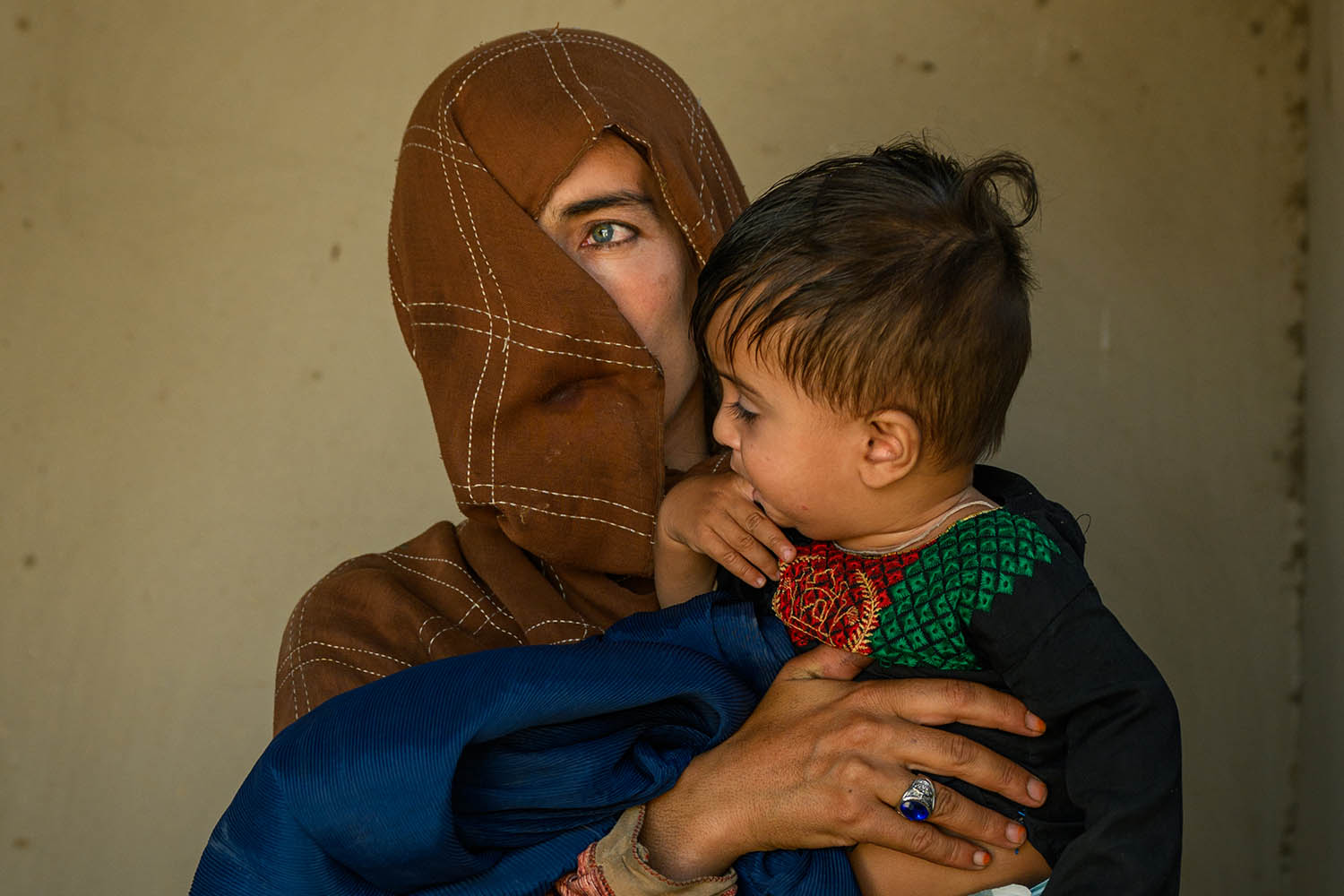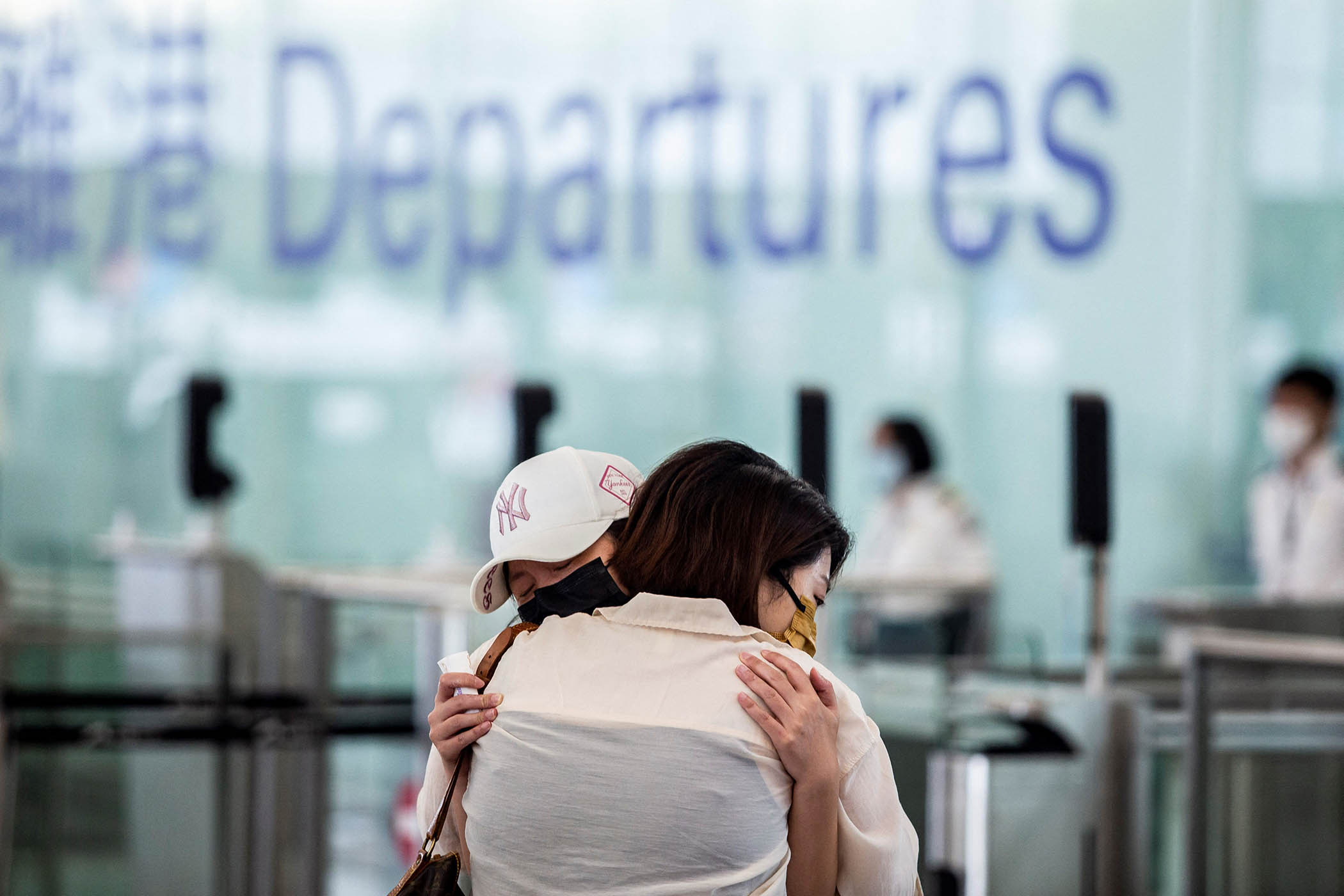Almost 400 women and girls are among thousands of Afghan asylum seekers who are in limbo because they have been refused refugee status in the UK but cannot be returned to Afghanistan.
Many are living in asylum hotels or temporary accommodation with no way to earn a living in this country and no prospect of ever being sent home because the British government does not recognise the Taliban administration.
One immigration lawyer compared the situation to Joseph Heller’s novel Catch-22, in which the main character is caught by contradictory rules in an impossible scenario.
Home Office figures show that in the year to June 2025, 6,066 people from Afghanistan had their asylum claim refused. These included 367 women and girls, who had their claims rejected despite the widespread human rights abuses they face in Afghanistan. Under the Taliban – who seized power in 2021 – girls are not allowed to go to secondary school and women are banned from universities, most jobs and public spaces such as parks, gyms and sports clubs.
According to Oxford University’s Migration Observatory, the “grant rate” for Afghan asylum claims has more than halved over the past year. At the end of 2023 almost 99% of Afghan asylum seekers had their applications approved but the rate in the first half of 2025 was only 37%.
It is unclear how many of these claimants have appealed – or had their appeals upheld – because the Home Office has not published appeals data since May 2023, but experts believe many will still be stuck in the system.
In addition, 6,784 Afghan nationals were still waiting for an initial decision on their asylum claims at the end of June. If the same proportion of these applications are turned down as have been rejected recently, there will be 4,274 more people trapped in limbo, taking the total number to more than 10,000.
The dramatic drop in successful applications follows a change in the Home Office guidance about the safety of Afghanistan. A “country policy and information note” on “fear of the Taliban”, first published in September 2024, states that there is “limited” evidence that all groups are at risk of persecution. “It will not be sufficient to qualify for asylum based on a vague or non-specific fear of the Taliban,” the document says.
However, the Home Office has also declared that it cannot send people back to Afghanistan because the UK does not recognise the Taliban as an “accepted foreign government”. The Taliban has informed the UK government that it will not accept travel documents issued by the Afghan embassy in London. At least nine people have returned to Afghanistan since 2021: it is thought that they all went voluntarily.
Yesterday Starmer promised that small boat migrants will be “detained and sent back” amid growing public concern over Channel crossings and asylum hotels. The conflicting policies appear to make this impossible for those from Afghanistan.
Newsletters
Choose the newsletters you want to receive
View more
For information about how The Observer protects your data, read our Privacy Policy
Jamie Bell, an immigration lawyer with Duncan Lewis solicitors, said: “People are stuck in a catch-22 situation. They are not able to return, but they are not deemed to be at risk, so they are completely reliant on the UK government to provide any sort of subsistence because they are not allowed to work. There are thousands of Afghans in Home Office hotels.”
‘Not able to return but not deemed to be at risk, these people are completely reliant on the UK government for any sort of subsistance’
‘Not able to return but not deemed to be at risk, these people are completely reliant on the UK government for any sort of subsistance’
Jamie Bell, immigration lawyer
At the end of June, 3,664 Afghan asylum seekers were being housed in hotels and 6,103 in other forms of “dispersal accommodation”. A further 4,900 Afghans had been relocated in “transitional accommodation”, which is often hotels. In the first six months of this year, 8,281 Afghan asylum seekers arrived by small boat.
Last week, Reform UK leader Nigel Farage said he would be willing to pay the Taliban to take back Afghan asylum seekers as part of a plan to deport hundreds of thousands of migrants.
A Downing Street spokesperson initially said that the government was “not going to take anything off the table”, but sources later insisted that reports of a deal with the Taliban had been “overblown”.
The Refugee Council has called for asylum seekers from Afghanistan, Eritrea, Iran, Sudan and Syria to be granted permission to stay for a limited period, subject to security checks. They would then be able to work, which would mean the Home Office could close some asylum hotels. This would apply only to those already in the system.
Jon Featonby of the Refugee Council, said: “Most people would understand why someone would want to escape the repressive Taliban regime and why some seek asylum in the UK. Many will be granted asylum and will be able to get on with their lives. But those who don’t meet the very high bar for being granted refugee status get stuck in limbo.”
Abdul, a former Afghan civil servant, fled with his wife, Sweeta, and their six-year-old daughter, Iqra, in 2022. The family had their application for asylum rejected in April 2024, and they are living with friends near Birmingham while they appeal.
“The situation in Afghanistan is very bad. The Taliban are terrorists: they are killing people, beating people and sending them to jail,” he said. “For women and girls, my country isn’t safe. They cannot go to the shops. They cannot travel alone. I want to save my daughter and my wife. I would be very happy to work.”
A Home Office spokesperson said: “The government inherited a chaotic asylum system where decision making had dropped by 70% and thousands were stuck in limbo. We are getting the system working, returning more of those with no right to be here and ensuring those who do can move on with their lives.
“The country guidance is clear that women are one of the groups that can be targeted by the Taliban, and it is also the case that most Afghan women who claim asylum are successful.”
Photograph by Elise Blanchard/Getty Images



